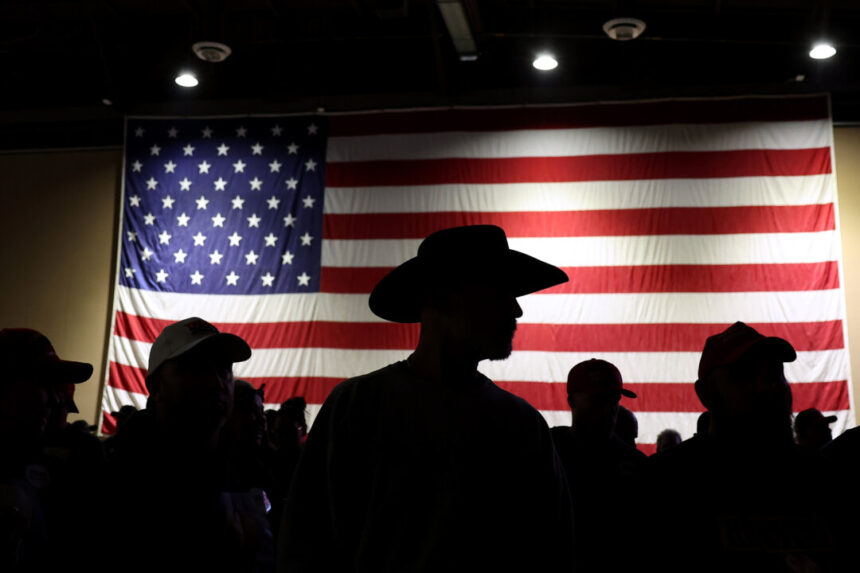Commentary
Washington, D.C., is on the brink of major changes that could reshape American life for the next generation or two. The impact will be felt not only in the federal budget but also across various industries, particularly in food and pharmaceuticals.
In the near future, we may witness the resurgence of small farmers, increased accountability for drug manufacturers, a reduction in bureaucratic overreach, and a push for more entrepreneurial freedom. Americans will be called upon to take greater responsibility for their own lives, as the government is burdened with insurmountable debt that restricts its ability to sustain current obligations.
Past political alliances have shifted significantly, challenging established norms. The unexpected convergence of “crunchy liberals” from the 1990s, the “Occupy Wall Street” movement opposing corporate influence in government, the American First movement, free-speech advocates, homeschoolers, and proponents of genuine free enterprise represents a coalition that few foresaw just a few years ago.
Looking back, it becomes evident that academia’s emphasis on “woke” cultural ideals exaggerated the role of race and overlooked the significance of class in political analysis. The diverse coalition that supported Trump defied conventional wisdom by uniting people of different races and rejecting the notion that men and women’s interests are inherently conflicting.
The common thread driving this movement is a desire for a return to normalcy, free from excessive government mandates and cultural elites’ moralizing.
Looking back at history, it is often easier to see the inevitability of events in hindsight. However, the failure of many to anticipate these changes begs the question of why. Reflecting on my college years, I recall being taught that the Soviet Union would surpass the United States in GDP and that the Cold War would endure indefinitely due to the perceived strength of the Soviet regime.
Yet, events unfolded differently.
The collapse of the Soviet Union and its satellites in Eastern Europe remains a vivid memory for those who experienced it. In a short span of time, the populace withdrew support from the government, officials lost their zeal for enforcement, the military turned against the ruling powers, and the advent of information technology dismantled established systems across the region. It was a remarkable transformation that defied explanation at the time.
Although the upheaval was unwelcome to those in power, it was a grassroots movement that altered the course of history. Once set in motion, events unfolded with unstoppable momentum.
Intellectuals scrambled to analyze the situation and concluded that totalitarian ideology itself was the root cause of the collapse. This ideology drained societies of vitality and productivity, leading to a sense of disillusionment among the elites who ultimately conceded defeat.
Despite enduring for longer than expected, the Soviet experiment eventually crumbled. The challenge lies in understanding why and how this collapse occurred.
Advocates of socialism were quick to dissociate the events from socialism itself, attributing the downfall to Stalinism rather than socialism as a whole. This distinction is crucial, as the Cold War had long been framed as a battle between capitalism and socialism, with capitalism emerging victorious, particularly in the form of the U.S. government.
However, the definition of capitalism has always been ambiguous. The United States, with its expanding government, extensive regulations, and bureaucratic influence, no longer aligned with the ideal of a free-market economy. Following the Cold War, rather than experiencing a “peace dividend,” the U.S. bolstered its military power and increased taxation and regulation.
Retrospectively, the dissenting voices that emerged in the 1990s and 2000s were indicative of a growing dissatisfaction among the populace. Movements like the Tea Party, health freedom advocates, proponents of whole foods, homeschoolers, and free-speech activists were all burgeoning independently, unaware of their shared interests and common adversary in the form of the corporatist administrative state.
The unexpected alignment of these diverse movements in the months leading up to the November 2024 election resulted in a dramatic political shift that caught many elite observers off guard. It was not merely about Trump but rather the collective protest against the established order that mobilized a mass movement.
Seemingly out of nowhere, individuals across the political spectrum united to challenge the status quo and reclaim agency in shaping their lives.
These are just preliminary observations of the ongoing developments. The full picture will only become clear in the coming year or so.
We are eagerly anticipating whether this is simply a superficial name change or if we will witness genuine structural transformation. At the moment, all indications point towards the latter, but millions are eagerly awaiting confirmation before celebrating a new era that truly safeguards the American project from various threats.
For many years, scholars have pondered the specifics of how “social change” occurs. What factors must align? What defines the “winds of change” in history? The Hegelians offer a different perspective compared to classical liberals like myself.
I align with Ludwig von Mises, who posited that history is shaped entirely by the ideas individuals hold about themselves and their societies. No regime is powerful enough to resist an idea whose time has arrived.
In our current era, the prevailing idea boils down to one word: freedom. This theme was evident during the collapse of the Soviet Union and fueled the 2024 election, which defied conventional wisdom. Transitioning from the current system to one closer to the Founders’ vision will be challenging and gradual. Nevertheless, change is on the horizon, and it is intriguing to observe the direction in which the tides are turning.
Fundamentally, history evolves due to the collective efforts of individuals seeking change. The status quo is never permanent. What has been established can be dismantled and reconstructed. Even the most formidable of powers can be exposed as fragile constructs, sustained by easily shattered illusions.
Allow me to add a personal reflection: I have had the privilege of engaging with individuals holding diverse perspectives from my own over the past three years. The disruption caused by lockdowns prompted us to connect with new communities, fostering an exchange of ideas. This newfound mingling of thoughts, emerging from previous isolation, has contributed to the unexpected unity of the current populism. I am grateful for this experience, as it underscores the value of embracing new learning paths and exposure to fresh ideas for progress.
The opinions expressed in this article are solely those of the author and may not necessarily align with the views of The Epoch Times.
Source link







